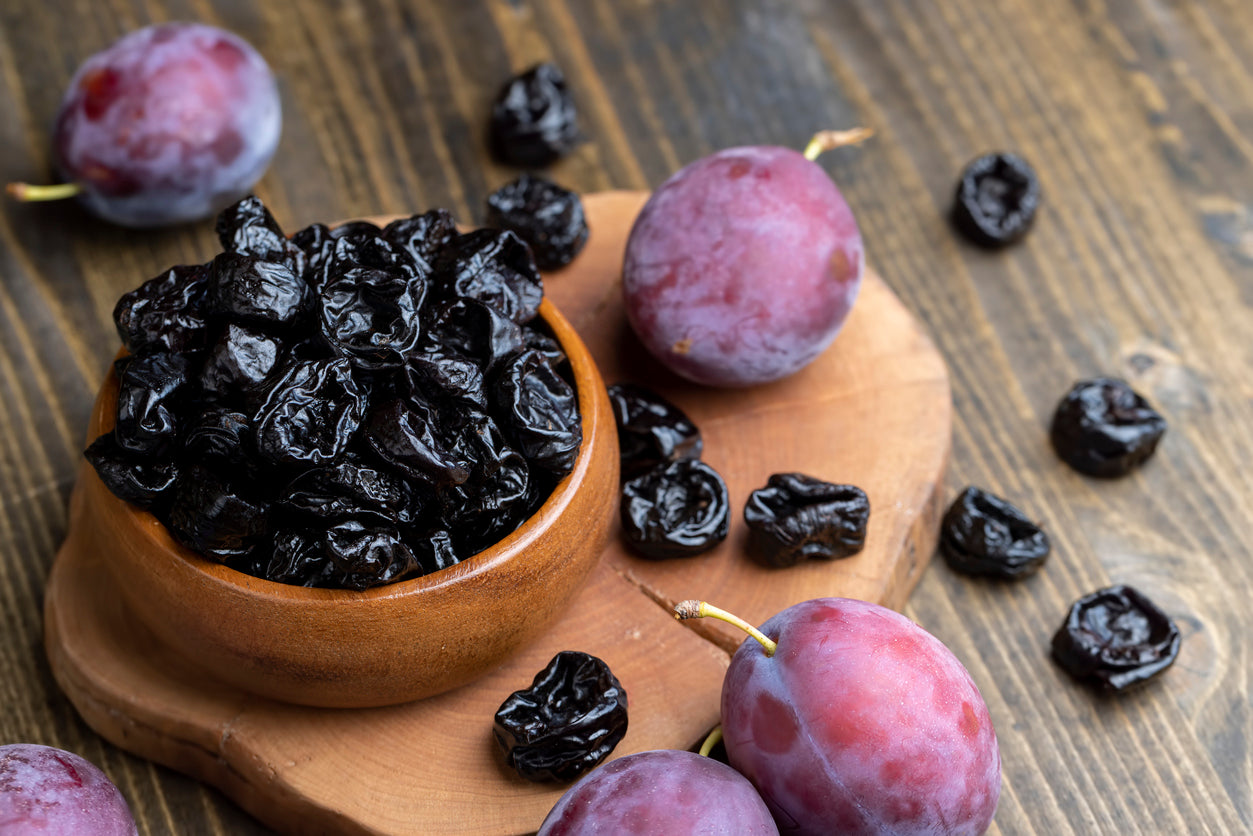Simple way to avoid constipation and the threat of serious health problems

Prunes are perhaps best known for their time-honored ability to help you avoid constipation. Keep in mind, if you're constipated, the risk of chronic inflammation, stress, anxiety, blood toxicity and nutritional deficiencies go way up. Fortunately, by choosing the right foods, you can dramatically reduce the risk of constipation naturally.
Prunes, of course, are simply plums that have been dried. Scientifically known as Prunus domestica, plums are packed with beneficial vitamins, minerals, polyphenols, and fibers - all of which are also found in prunes. Moreover, research suggests that prunes may have previously unrealized abilities to protect against serious health problems.
Today, we'll explore the many far-reaching, health-promoting powers of prunes.
Reduce your risk of osteoporosis by eating prunes
Osteoporosis, an age-related condition in which bones become more porous, raises the risk of debilitating fractures. But prunes can be an important line of defense against this disease. Researchers report that flavonoids such as beta-carotene and anthocyanins in prunes can increase pathways that promote the creation of new bone cells or osteoblasts.
In addition, prunes are excellent sources of the bone-building nutrients vitamin K, phosphorous, magnesium, and potassium. In a controlled study published in the American Journal of Clinical Nutrition, scientists explored the effectiveness of twelve months of regular prune consumption in increasing hip bone density mineralization in postmenopausal women. The results were striking.
While the control group lost bone mineral density over the course of the study, density was preserved in the prune group, leading the impressed scientists to conclude that 50 grams of prunes a day could serve as a valuable drug-free treatment intervention for osteoporosis. Clearly, nibbling on prunes is good for the bones.
Regulate your blood glucose levels and reduce the risk of type 2 diabetes
Prunes are higher in sugar and calories than plums. Despite this, prunes don’t appear to cause meaningful rises in blood sugar.
In fact, their generous amount of fiber slows the absorption of carbohydrates and helps to protect against harmful blood sugar “spikes.” Prunes also help to increase adiponectin, a hormone that promotes healthy blood glucose levels and reduces chronic inflammation.
In addition, antioxidant flavonoids in prunes can help scavenge free radicals that could otherwise cause oxidative damage and contribute to type 2 diabetes. By the way, plums and prunes are believed to offer twice the antioxidant power of other fruits, including their “cousins” nectarines and peaches.
In one eye-opening study, scientists found that consumption of prunes and plums - along with apples, blueberries, and grapes - is linked with lower rates of type 2 diabetes! Of course, if you have been diagnosed with diabetes, discuss your prune consumption with your holistic physician or health coach.
Promote efficient bowel elimination and maintain a healthy body weight
Prune’s reputation as a gentle natural laxative is well-deserved. Prunes are rich in insoluble fiber, which adds bulk to stools and helps to speed waste through the digestive tract.
Another secret weapon in prunes is sorbitol, a natural sugar alcohol with laxative effects. In one study published in the American Journal of Clinical Nutrition, people who consumed two ounces of prunes a day for three weeks had better stool frequency and consistency than those who used psyllium fiber, another popular nutrient to prevent constipation. The researchers even suggested that prunes be considered a “first-line therapy” for treating mild to moderate constipation.
Not only do prunes help promote the elimination of waste and toxins from the body - thereby helping to ward off the feelings of sluggishness and lethargy that can accompany constipation - but their fiber creates a sense of fullness that can help discourage food cravings and binge eating. At a reasonable 115 calories per 50-gram serving (five medium-sized pitted prunes), this tasty dried fruit, when eaten in moderation, can support a weight loss journey.
In addition, prunes make an excellent post-workout snack, especially when paired with protein.
Prunes are easy to incorporate into your diet
Portable and convenient, prunes are always ready to be enjoyed out of hand as an energizing snack. You can also blend them into smoothies, stir them into raw yogurt, add them to your favorite salad or trail mix. Fans of prunes may also want to try stewed prunes, prune whip, and prune butter.
How many prunes are too many? Most nutritionists advise limiting your prune consumption to 44 to 87 grams daily (roughly one-quarter to one-half a cup per day). Prune juice should be limited to four to eight ounces a day. Look for brands that are 100 percent organic prune juice with no added sugars.
Bottom line: prunes can help keep your digestive system running smoothly, but they also appear to benefit bones and blood sugar levels. Delicious, nutrient-packed prunes make a great addition to your healthy diet.
Sources for this article include:






